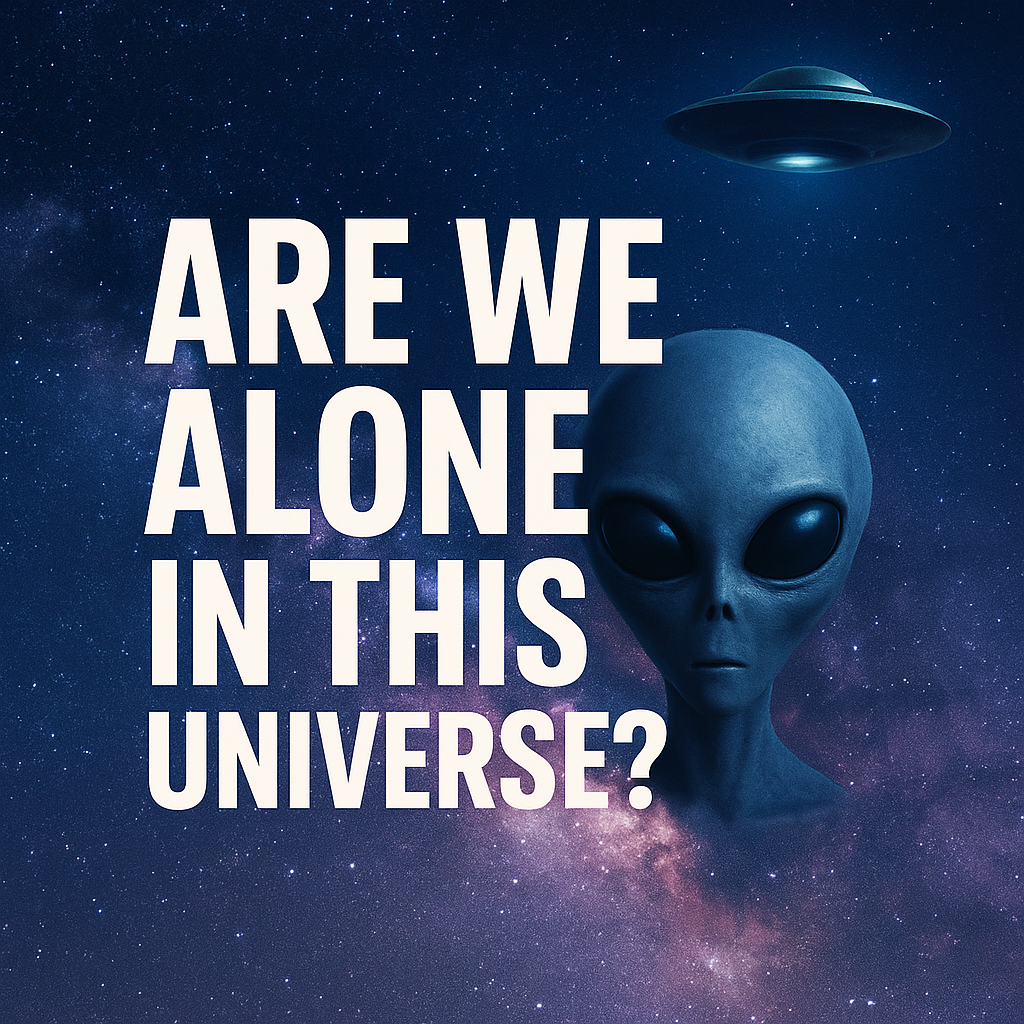Are We Alone in This Universe? The Truth About Aliens and the Unknown Cosmos!

For centuries, one question has echoed in the minds of philosophers, scientists, and curious stargazers: Are we alone in this universe?
In a cosmos filled with billions of galaxies, each holding billions of stars and possibly even more planets, the idea that Earth is the only home to intelligent life feels… statistically unlikely. And yet, no conclusive proof of aliens has ever been found. So what’s the real story?
🌌 The Vastness of the Universe
To grasp the scale, consider this: Our Milky Way galaxy alone has over 100 billion stars, and the observable universe contains more than 2 trillion galaxies. If even a tiny percentage of those stars host planets in the “habitable zone,” we could be looking at millions—if not billions—of Earth-like worlds.
Scientists refer to this as the Fermi Paradox: With such a high probability of alien life existing, why haven’t we encountered any evidence yet?
🛸 Have We Already Been Visited?
From UFO sightings to mysterious crop circles, the idea of extraterrestrial visitors has fascinated and frightened humans for generations. In recent years, major governments—including the United States—have declassified UFO files, revealing unexplained aerial phenomena captured by military aircraft.
Still, no clear proof has emerged. Are these alien visitors… or just advanced drones, natural phenomena, or secret tech?
🧬 Could Alien Life Be Very Different from Ours?
Many scientists believe that our concept of life may be too Earth-centric. What if alien life isn’t carbon-based? What if it’s not even physical as we understand it? Plasma beings, silicon-based organisms, or even energy-based consciousness—these are all within the realm of possibility.
Some even believe that alien civilizations could exist in higher dimensions or communicate in ways we can’t yet perceive.
🛰️ The Search for Life: What Science Is Doing Now
Efforts like SETI (Search for Extraterrestrial Intelligence) scan the skies for radio signals, while NASA’s James Webb Space Telescope is analyzing the atmospheres of exoplanets to detect potential signs of life, like oxygen, methane, or water vapor.
Missions to Mars, Europa (moon of Jupiter), and Enceladus (moon of Saturn) aim to find microbial life. If we find even the smallest microbe beyond Earth, it would prove that life isn’t unique to our planet.
🧠 Could We Be the First or the Last?
There’s a chilling thought: What if intelligent life is incredibly rare, and we’re among the first? Or worse—what if civilizations tend to self-destruct, and we’re racing against time to avoid that fate?
This theory is known as “The Great Filter”—a hypothetical stage in evolution that few, if any, species survive. Are we still ahead of it, or did we already beat the odds?
👽 Final Thoughts: What If We’re Not Alone?
Whether you’re a skeptic or a believer, the question of extraterrestrial life is no longer just science fiction—it’s one of the most serious scientific inquiries of our time.
As technology advances and space exploration accelerates, we may be on the verge of the greatest discovery in human history: proof that we are not alone.
Until then, we keep looking up and wondering.
✨ Like what you read?
📢 Advertise your brand with Fact Post and reach over 100K+ curious minds across social media and web!
👉 bijnorbreakingnews.com/advertise-with-us
🛸 #Aliens #Universe #UFOs #SpaceMysteries #FactPost #IsAnyoneOutThere



